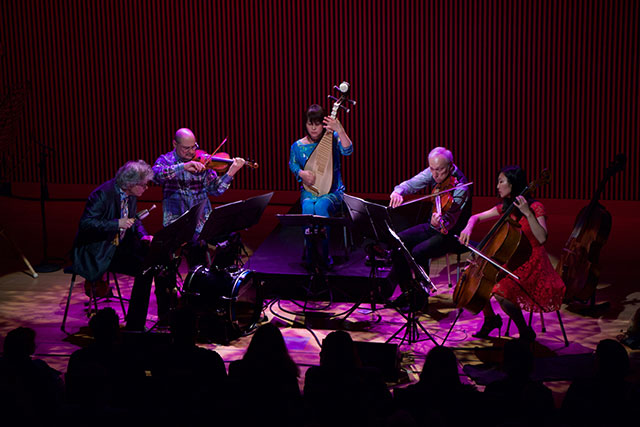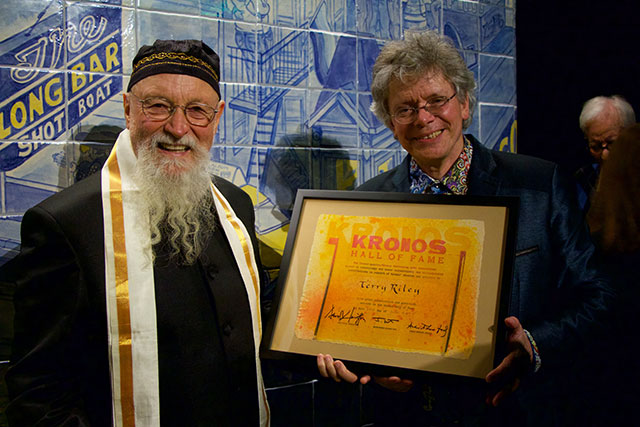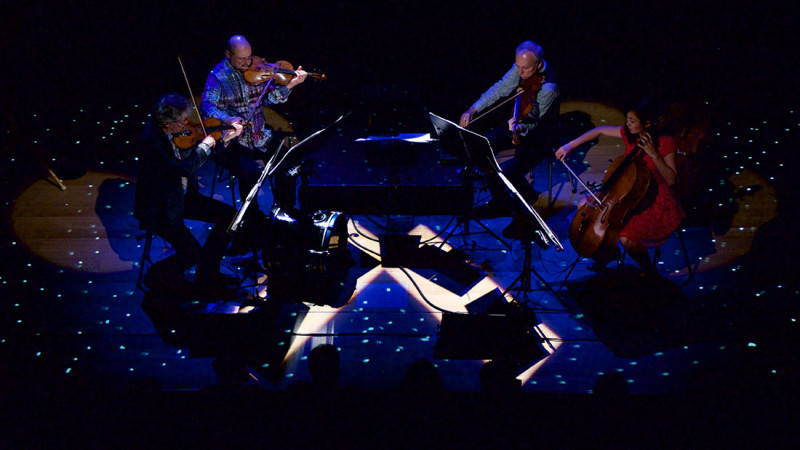Commemorative concerts and celebrations have been planned around the world for the famed composer Terry Riley’s 80th birthday. But the most special celebration of all may have been the one closest to home: a three-day festival organized last weekend in San Francisco by Riley’s longtime friends and collaborators, the Kronos Quartet.
Over the course of three nights of ambitious concerts, a wide range of works by Riley, and works inspired by Riley from the 1960s to the present, were performed — some for the very first time. On hand were a large array of special guests, including Riley’s son, the guitarist Gyan Riley; the tabla virtuoso Zakir Hussain; Greg Saunier of the rock band Deerhoof; the composer and musician Jherek Bischoff; Chinese pipa virtuoso Wu Man; Indian violinist Kala Ramnath and many more.

The performances over the three nights showcased the immense depth of Riley’s sprawling oeuvre — and the tremendous stamina and versatility of the Kronos Quartet, who performed the vast majority of the pieces. Highlights of Friday night included a rousing version of the Who’s 1971 hit “Baba O’Riley,” arranged by the composer Jacob Garchik and performed by Kronos. The title of the original song, written by Pete Townshend, was inspired by the Indian guru Meher Baba and by Riley. (According to popular legend, Townshend wore out 20 vinyl copies of Riley’s 1968 epic A Rainbow in Curved Air in the years leading up to writing “Baba O’Riley.”)
Another Friday highlight was the world premiere of a special piece written by Yoko Ono in honor of Riley’s 80th birthday. Ono’s performance piece, titled “To Match the Sky,” instructs the performer to make a sound with an instrument that attempts to “match the sound that the sky is making at the time.” These sounds, Ono specifies, can be of any duration, and are classified in four groups: “Sky with clouds floating”; “raining”; “snow falling”; and “thunder and lightning.” For Ono’s instruction of the “sky with clouds floating,” Kronos ran their bows softly and almost imperceptibly over the strings of their instruments; “raining” inspired pizzicato plucking and tapping; “thunder and lightning” provoked intensity from Kronos and from the audience, who stomped their feet, flashed their phones, and created as much noise as possible.
But “snow falling” was the most striking to watch — the members of the Kronos Quartet silently held their hands and waved them slowly above the strings, not making a sound at all. Friday’s performance closed with Riley’s 1981 piece “Sunrise of the Planetary Dream Collector,” which ended with a surprise “sunrise jam” from dozens of guest musicians and performers, who were planted among the audience.

Saturday night was also studded with special guests and surprises, with varying results. A stirring performance of “Escalay (Water Wheel),” a piece by Riley’s late friend, the famed Nubian composer and musician Hamza El Din, drew rapturous applause. Though Kronos employs the traditional string quartet setup of two violinists, a violist, and a cellist, they sounded remarkably like an oud, the graceful stringed instrument best known for its use in Arabic music. One-minute tributes written in Riley’s honor by six composers and performed by Kronos were lively and compelling, especially the riotous and energetic contributions by Bischoff and Saunier. Meanwhile, a new reinterpretation of Riley’s “A Rainbow in Curved Air” — a collaboration between Kronos and the local band the Living Earth Show — never quite achieved liftoff. In the original 1968 recording, Riley played all the instruments himself, and the work had a cohesion and flow all its own. In the new version, the Living Earth Show seemed to clash with Kronos; the result felt jarring rather than transporting.


